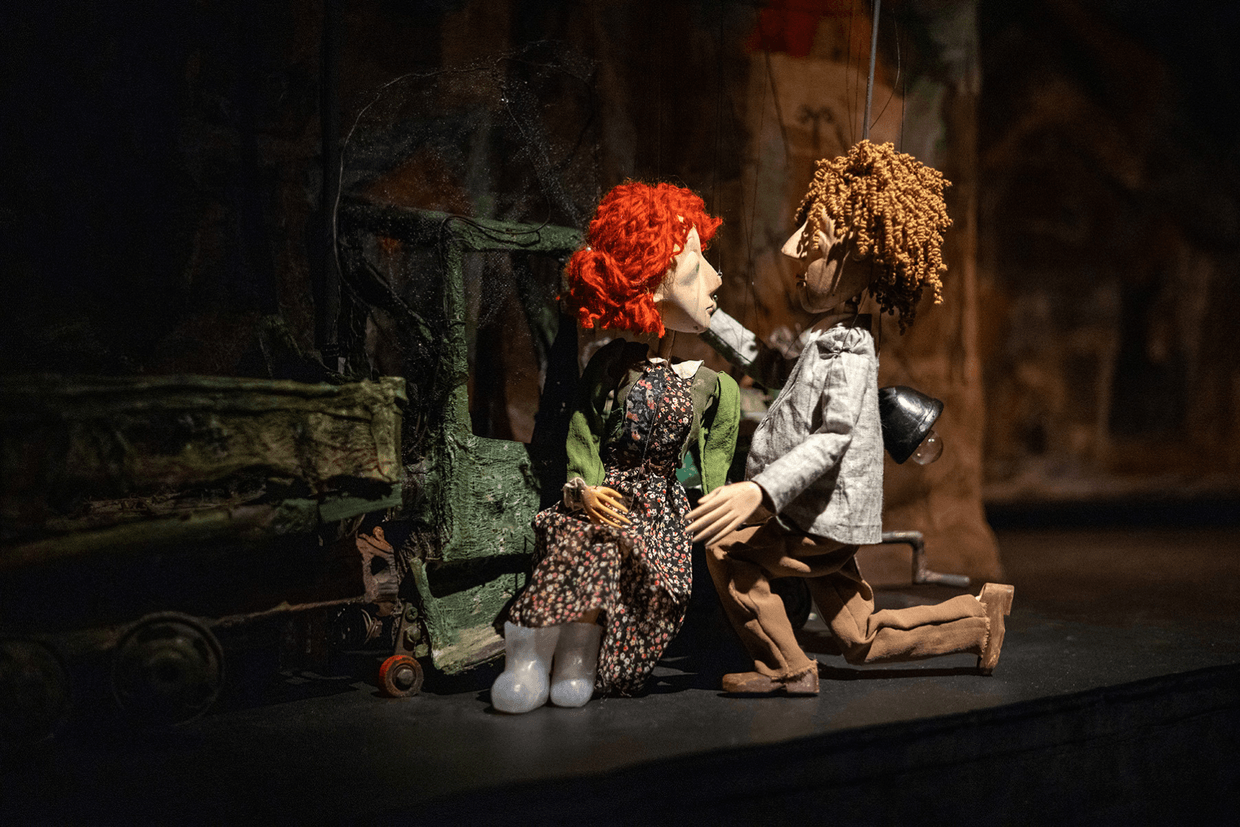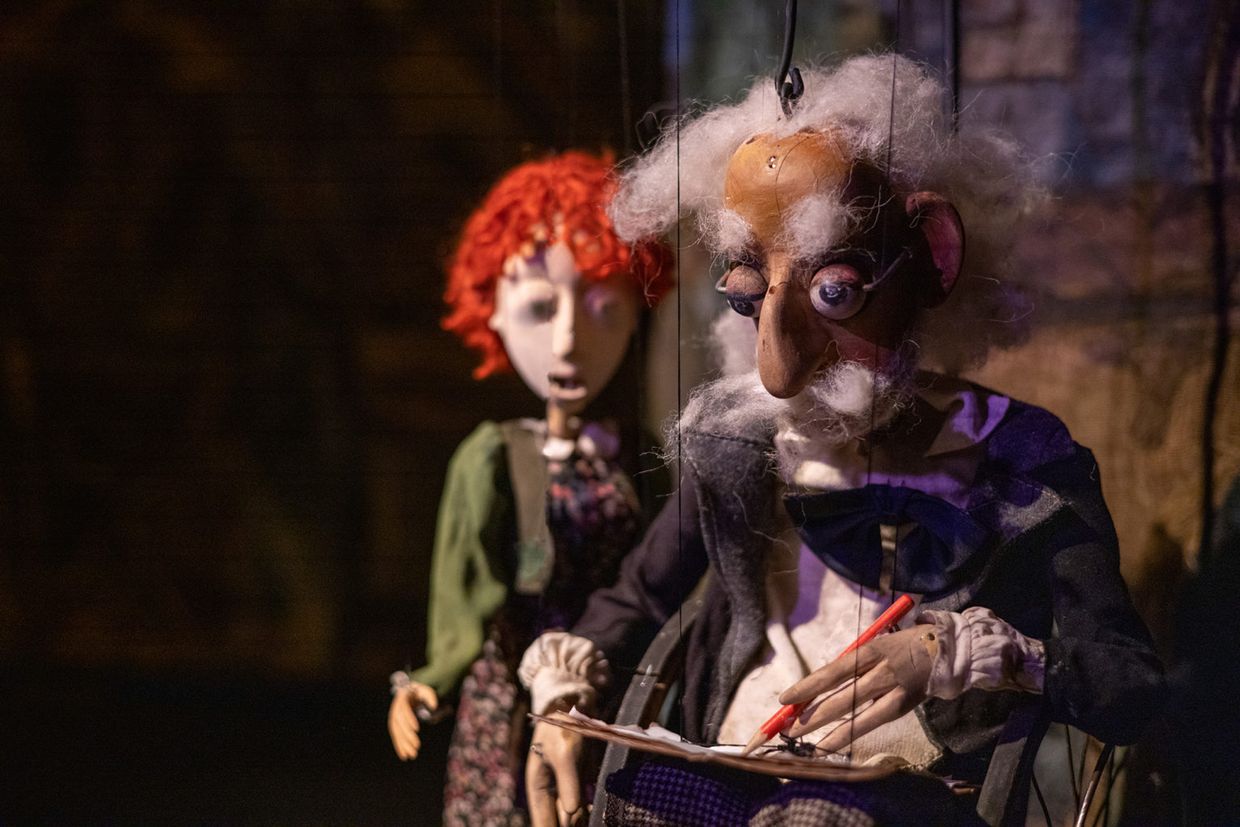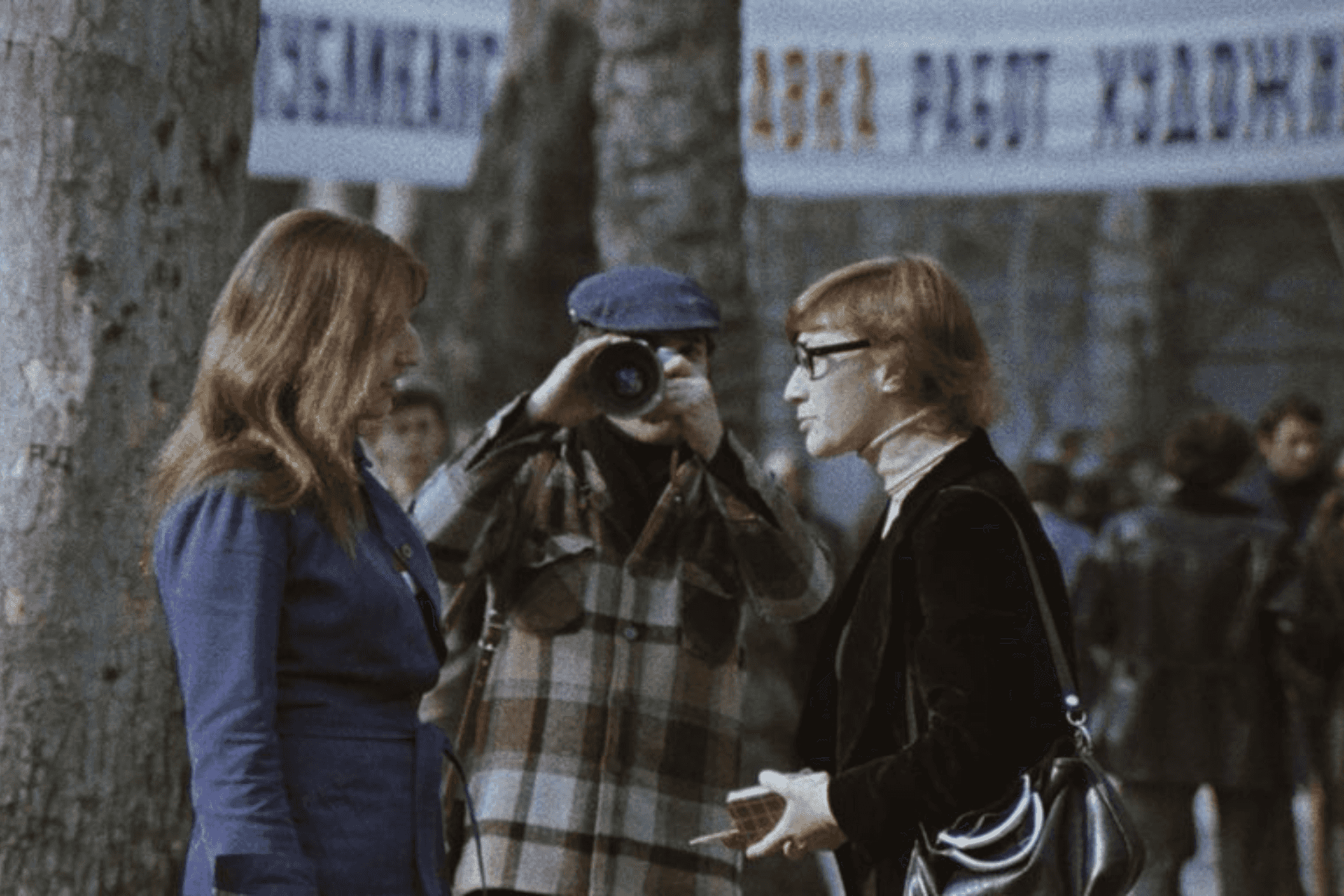Review | Alfred and Violetta — Rezo Gabriadze’s most famous marionette tale of love amidst conflict

4.5/5★
This preeminent production by Georgian director and puppeteer Rezo Gabriadze sets the classic plot of La Traviata amidst the Georgian Civil War.
Gabriadze first staged Alfred and Violetta — an adaptation of both Alexandre Dumas’ 1848 novel La Dame aux Camélias and Giuseppe Verdi’s subsequent 1853 opera La Traviata — in 1981, as the opening performance of the Rezo Gabriadze Marionette Theatre in Tbilisi.
Forty years later, in the year before his death, Gabriadze almost completely rewrote the script, adding new characters and adapting the setting to the violent chaos overtaking Tbilisi in the 1990s. This updated version premiered in 2021 under the impressive direction of Leo Gabriadze, Rezo’s son.
The performance centres on the beautiful red-headed orphan Violetta, who is suffering from tuberculosis. In the widespread poverty that arose following the dissolution of the Soviet Union, she can ill afford the necessary treatment.
Her path soon crosses with that of Alfred, a successful young astronomer who has been granted the elusive European visa in order to introduce his new star to the experts in Italy. Of course, the two fall madly in love, causing Alfred to forsake his promising future and instead spend all of his money attempting to treat Violetta’s illness.
When Alfred’s father finds out, courtesy of a chain-smoking raven, he asks Violetta to end the relationship, emphasising that she is ruining Alfred’s life. She obliges, and Alfred leaves for Italy. At this point, the story follows each character separately, switching back and forth between the narratives.

For Violetta, the story focuses on the trauma wrought by the Georgian civil war, as she is forced to flee Tbilisi for the spa town of Abastumani. Before long, Tbilisi thugs find their way into politics there too, privatising everything. When the Soviet locomotive Sergo finds out he is to be sold, he aids Violetta, her childhood friend Cuckoo, and a consumptive horse to return back to Tbilisi, where Violetta finds her beloved Mtsminda house burnt to the ground.
Concurrent to this, Alfred finds success in Italy, naming his new star Violetta. Aided by a series of talking marble statues, he ekes out a life as a busker in a variety of Italian cities before earning enough money to return to Georgia and reunite with Violetta.
The entire performance is cleverly meta, with references to La Traviata a running gag. For example, when the raven is attempting to influence Alfred’s father into breaking off the couple’s relationship, he reminds the father of the opera’s Act 2, asking ‘Can you take it?’. Later, the marble statues push Alfred to attend a performance of La Traviata at the leading opera house La Scala. Most humorously, the elderly narrator closing the play lambasts the director for the show’s ending, asking the audience what Verdi would think and pleading with them not to notify the Culture Ministry.
The production is also chock full of literary references — from the opening argument between which classic author’s philosophy is best to follow to the character of the raven which introduces itself as a harbinger with a croak of ‘Nevermore’ — as well as Gabriadze’s characteristic surrealism (evident as well in his many screenplays for Soviet Georgian cinema).
The attention to detail throughout the performance is impressive — you cannot fully comprehend every aspect of the scenery and staging in each scene, all of which endeavour to fully immerse the audience into the production. Even the visible presence of the puppeteers adds to the ambience rather than detracting, providing insight into the great skills necessary to manipulate the dozens of intricate puppets.
Alfred and Violetta is a Tbilisian classic for a reason — whether adult or child, Gabriadze’s masterpiece is sure to entertain.
Alfred and Violetta was recently staged as part of the 2025 Tbilisi International Festival of Theatre. It is part of the Gabriadze Theatre’s official repertoire and will be shown throughout October, complete with English subtitles.










